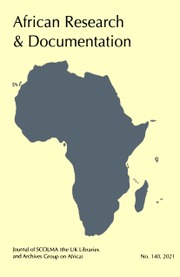No CrossRef data available.
Article contents
Book Preferences, Conceptions of Books and Reading Practices Among Urban Adults with a Basic Level of Literacy
Published online by Cambridge University Press: 25 April 2022
Extract
The extensive body of scholarship on reading practices has established a number of ground rules. Some of these include the notion that literacy cannot be understood in a positivist way, that literacy is embedded in a social context, that there are multiple literacies rather than one monolithic literacy, and that reading tastes and practices are conditioned by a variety of social factors such as class affiliation, religious upbringing, and gender. Reading practices, literacy and conceptions around books are clearly interrelated issues that cannot be separated from one another. An understanding of reading and books among adults with a low level of literacy thus has to grasp all these issues simultaneously.
The findings of both Lyster (1995) and French (1988) highlight the idiosyncratic nature of reading preferences and practices among the participants of their studies.
- Type
- Reading and Readership in South Africa
- Information
- Copyright
- Copyright © International African Institute 2000
Footnotes
This article is extracted from a much longer Honours dissertation of the same title. The original dissertation contained an extended theoretical and methodological section. Those interested in these areas can consult the original (housed in the Department of African Literature, University of the Witwatersrand.)


